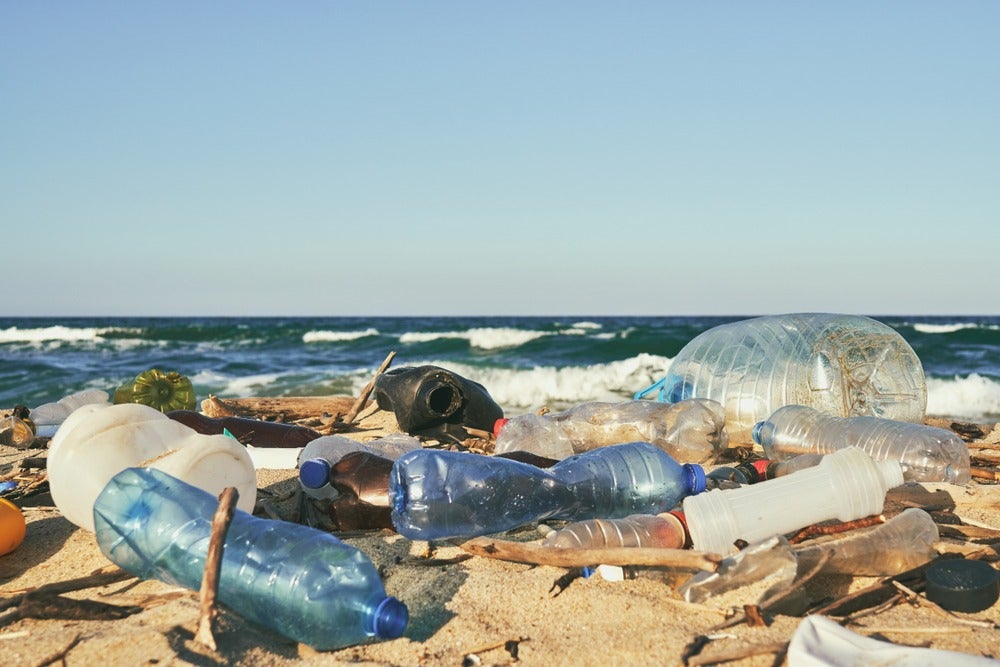Like Brexit, the question of plastics in packaging is one that is not going to go away anytime soon, and it is also an issue that divides opinion into two diametrically opposed camps.
The future of plastic packaging
One viewpoint, expressed by the British Plastics Federation is that plastic packaging is one of the most important contributors to protecting food from spoiling, adding that food waste has a significantly higher environmental impact, particularly in the form of its carbon footprint than packaging waste.
However, this view is not shared by environmental groups such as Surfers Against Sewage in the UK who recently organised a week-long event whereby supermarket customers in 33 stores handed back unnecessary plastic packaging to shop owners as a “fun, high impact” way to show how much plastic waste is produced with every shop. The group noted that in one store some 1,660 items were handed back, with just 10% suitable for recycling.
It is clear that many consumers in the UK are becoming concerned about their plastic use and many, horrified by the images of the plastic islands floating around the Pacific Ocean, are anxious to reduce their plastic footprints.
In December 2018 National Geographic revealed that the estimated amount of plastic waste ever made, that has never been recycled, amounted to 90.5%. Estimated at 6,300 million metric tonnes, scientists calculated that around 12 per cent of all plastic waste has been incinerated, while roughly 79 per cent has found its way into landfills or become litter.
Cutting out plastic use at the source
Many campaigners believe the only way to solve the problem is to cut plastic waste off at the source. They want manufacturers to use less packaging, ensure it is recyclable, and be charged more to deal with its end-of-life costs – cash which could be used to invest in UK recycling infrastructure.
Manufacturers and retailers have said they want much the same thing. Some of the country’s biggest companies launched the UK Plastics Pact earlier this year, with signatories promising to ensure at least 70 per cent of plastic packaging is effectively recycled or composted, and that plastic packaging includes an average of 30 per cent recycled content.
The economics of recycling plastic
In October 2018 the UK government launched what it called a world-leading approach to tackling the 2.26 million tonnes of plastic packaging used in the UK each year.
The vast majority is made from new plastic, rather than recycled material. This, it emerged from consultation documents compiled earlier in the year, is because recycled plastic is often more expensive than new plastic, despite its lower environmental impacts. To combat this, it has been decided to introduce a new tax on plastic packaging from 1 April 2022.
Subject to consultation, this will mean that any business that produces or imports plastic packaging that does not contain at least 30 per cent recycled content will have to pay a tax.
In January a group of the world’s largest consumer product firms reportedly joined with recycling specialist TerraCycle to unveil a new global service designed to enable household collection of empty or used product packaging for refilling, reuse or recycling.
Named ‘Loop’, the system is attempting to provide households with a convenient way to reduce reliance on single-use plastics in the home. Under the scheme, people will be able to buy and use a range of products in customised, brand-specific packaging that can then be collected, cleaned, refilled and reused.
Most recently food company Nestlé and French resource management company Veolia have announced a joint project to deal with waste collection and the sorting and recycling of plastics, in particular, flexible plastic packaging. The focus will be on creating practical and viable recycling options which will include chemical methods such as pyrolysis, the thermal decomposition of materials at high temperatures, which is capable of creating virgin-quality plastic.
Nestlé said that such techniques will help it boost the recycled material of its bottled water packaging to 35 per cent, as well as increasing the recycled content of its overall plastic packaging to 15 per cent, by 2025.
While it is clear that a number of environmentalists would love to see a complete end to all plastics, not just the single-use plastics which are the current focus of public protest, the plastics industry has quietly collated evidence for the defence.
Why plastic is fantastic
A collection of research compiled by the British Plastics Federation has revealed that more than 50 academics from 16 UK universities have warned that replacing plastics with alternative materials could lead to greater environmental damage – as much as quadrupling the environmental costs.
At the end of 2018, in an open letter co-signed by the British Plastics Federation (BPF), 18 academics from 15 universities drew attention to the low amount of energy used in its production, its lightweight in comparison to alternatives and the resources used in its manufacture.
Following this, Herriott Watt University in Scotland independently released a similar statement, signed by 40 academics from a range of disciplines including engineering, economics and various physical and social sciences, which warned that replacing plastics with alternatives could lead to unintended damage to our ecosystems.
In December 2018 a report published by US and Canadian scientists concluded that plastic is the most environmentally-friendly packaging material.
While it seems clear that the issue of plastic and packaging is not a simple one – it is also clear that countries such as the UK are going to have to find a way to make recycling possible and practical.
Who pays for it all is a question for another day.





